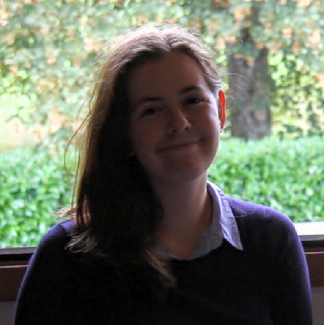There’s something unnerving about historical fiction that feels like it could have played out just the same today. Though set in a tumultuous Nigeria in the 1980s, Ogadinma’s themes are sadly, infuriatingly, entirely too relevant today. After a rape turns into an unwanted pregnancy, which in turn is resolved with a dangerous and illegal abortion, seventeen-year-old Ogadinma is forced to leave her home in Kano to live with her aunt and uncle in Lagos. This is the preferable outcome, as opposed to some hurried marriage to bury the shame of the situation – because, of course, it is Ogadinma’s shame to carry, not that of her rapist. Lagos in turn represents new ground and opportunities, and a chance to fall in love; but this veneer is rapidly shattered as the many ways men can control women in this society are put on display.
Ogadinma is author Ukamaka Olisakwe’s second novel, and what a follow up. This perhaps shouldn’t be surprising considering her background. A novelist-cum-short story writer-cum-screenwriter, who has already had her talents on display in the TV series The Calabash, as well as writing published in Catapult, the New York Times, and The Rumpus, it’s no shock that she’s been tapped as a writer to watch. The Indigo Press’s blurb to this book describes it as a “feminist classic in the making”. A big claim to open on, but Olisakwe isn’t here to mess around. This is a book that means business.
What struck me about Ogadinma, both as a book and as a main character, was the honesty at her, and it’s, core. As life went from bad to worse, I braced myself for the predictable plotline: someone shakes some sense into Ogadinma, she comes into her own as a hero, and takes down all the men who wronged her. But thankfully, that story never came, because that’s rarely how life goes. There is, likely, a moment when things begin to look up for Ogadinma, but I’d struggle to pinpoint the exact second. Instead, it’s a gradual change: people helping her, followed by a stumble, another help, a stumble, and so on. The journey upward is not easy for Ogadinma, and her life never returns to some idyllic, beautiful happy moment, but it does get to a different, better place. It’s not a story of great heroics, but rather the quiet courage of moving on and starting new.
There was also a startling amount of comedy. The outline I’ve written above, similar to many other reviewers, is one that sounds bleak, and admittedly large portions of the book are incredibly sombre. But there’s great moments of humour and community, especially between the female characters. For example, the title of the book, a translation of Ogadinma’s name – “Everything Will Be Alright” – comes up as a motif in the dialogue: sometimes it is a way of carrying on, but sometimes it is just a ridiculous notion, a phrase spoken completely out of touch with what’s actually happening. This lightness, and those bright moments of friendship, are what make it possible for Ogadinma, as well as the reader, to keep going and not collapse under the harshness of the narrative.
The blurb, for once, doesn’t lie: Ogadinma indeed has all the makings of a modern feminist classic. It has the necessary fury, the rage that this plot can even exist. The way that things go from bad to worse in a way that is not only believable, not just possible, but all too likely and familiar, should make your blood boil. But this is only the surface. The complexity of emotions on display in this book, and the deft hand with which these tricky themes are handled, are sure to keep you hooked until the final page.
Ogadinma Or Everything Will Be All Right is published by The Indigo Press, out now: https://www.ipgbook.com/ogadinma-products-9781911648161.php.
____________
About the Author

Zoë Wells (she/her) is a Swiss-British writer and poet based in the UK. She is currently studying towards an MA in Creative Writing at the University of Manchester, having previously received her BA in English Literature and Creative Writing from Warwick. She is working on a debut historical fiction novel, alongside a poetry pamphlet, and has had her short fiction and nonfiction published in a number of magazines. Find her on twitter at @zwells_writes or visit her website.















Leave a Reply